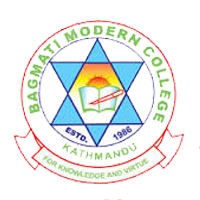Overview
Ten Plus Two (+2) Management at Trinity International College, Dillibazar, Kathmandu
Ten Plus Two (+2) Management at Trinity International College, Dillibazar, Kathmandu, follows the National Examinations Board (NEB) curriculum. Students study management fundamentals with accounting, economics, business studies, and related options.
Internal assessments and practical tasks run during the year, while NEB conducts external board examinations. The stream supports aspirations in business, banking, entrepreneurship, economics, hospitality, and information systems at bachelor level.
Subject combinations are finalized each intake to align with NEB structures and timetable feasibility. Class routines balance theory, problem practice, writing tasks, and periodic reviews.

Highlights
-
Affiliation: NEB (+2 Management)
-
Location: Dillibazar Height, Kathmandu
-
Duration: Two academic years (Grade XI and XII)
-
Core Study Areas: Accountancy, Economics, Business Studies, Business Mathematics/Computer Science/Marketing (as offered), English, Nepali
-
Assessment: Internal tests and assignments; external NEB board exams
-
College Context: Timetables, library/ICT access, counseling, and parent–teacher meetings managed on campus
Curriculum Details
Structure and Study Pattern
Grade XI introduces the foundations of accounting, economic reasoning, and business concepts along with language subjects.
Grade XII advances the same tracks and concludes with NEB board examinations. Syllabuses specify learning objectives, model questions, and practical components where applicable.
Teachers sequence topics into short, manageable units followed by guided practice. Problem sets, case snippets, and writing tasks train students to show steps and structure answers. Independent study logs help maintain steady pace across terms.
Typical Subject Combinations
-
Core Management Track: Accountancy, Economics, Business Studies, English, Nepali, and one from Business Mathematics/Computer Science/Marketing
-
Quantitative Track: Accountancy, Economics, Business Mathematics, English, Nepali, and Business Studies
-
IT-Linked Track: Accountancy, Economics, Computer Science, English, Nepali, and Business Studies
Final offerings depend on intake approvals and timetable design. Students confirm choices through counseling so that bachelor prerequisites remain in view.
Internal Monitoring and Board Alignment
-
Internal: Unit tests, terminal exams, assignments, practical/lab work where applicable, and attendance checks
-
Board: NEB written examinations and practicals (if specified) at the end of Grade XII
-
Feedback: Post-test reviews with mark-based targets and brief meetings to address weak areas
Objectives
-
Build foundational literacy in accounting, economics, business principles, and quantitative methods.
-
Develop writing, presentation, and spreadsheet habits suitable for management studies.
-
Prepare students for bachelor-level programs in business and related fields.
Scope
+2 Management results support entry to BBS, BBM, BBA (where available), and other business-oriented bachelor programs, as well as IT-linked programs where eligibility applies. Students targeting banking, finance, hospitality, entrepreneurship, or analytics plan bachelor choices and entrance preparation accordingly.
Learning Outcomes
-
Explain basic accounting concepts and prepare routine statements using accepted formats.
-
Interpret demand–supply, cost, and market structures at an introductory level in economics.
-
Describe business organization forms, functional areas, and simple policies and procedures.
-
Apply arithmetic and elementary algebra/statistics to management problems where courses require it.
-
Write structured answers and short reports using clear headings, lists, and well-labeled workings.
Skill Development Modules
-
Accounting Skills: Journal, ledger, trial balance, bank reconciliation, depreciation basics, and financial statements
-
Economic Reasoning: Graph reading, elasticity ideas, market sketches, and concise explanations
-
Business Communication: Letters, memos, short reports, and presentation briefs
-
Quantitative Methods: Business Mathematics or introductory statistics, spreadsheet practice where available
-
ICT Literacy (where offered): Basic office tools, file management, and simple data handling
Teaching Methodology
- Classes run with short theory blocks, problem drills, and writing tasks.
- Teachers use board-based walkthroughs for accounting formats and economics graphs, then assign timed practice.
- Past-paper clinics explain command words, marking logic, and common errors.
- Parent–teacher meetings and counseling sessions help maintain routine and track goals.
Admission Requirements
-
Academic Eligibility: SEE or equivalent secondary qualification recognized for NEB Management
-
College Steps: Application form, document verification, placement test or interview as announced, offer letter, and enrollment within the stated window
-
Subject Selection: Counseling to align combinations with bachelor prerequisites and student strengths
Applicants prepare transcripts, character and migration certificates (if applicable), photographs, and identification for verification. Scholarship applicants attach required documents within the published deadline.
Career Opportunities
+2 Management graduates proceed to bachelor programs in business, economics, hospitality, and information systems. After degree completion, students move toward roles in accounting support, sales and client service, operations assistance, store and logistics, bank branch support, and entrepreneurship.
The habits formed in problem-solving, documentation, and communication support early internships and campus activities.
Scholarships and Financial Aid
-
Entry-Based: GPA/grade-linked awards at admission where published for the session
-
Progress-Based: Provisions tied to term results, attendance, and conduct as per current rules
-
Documentation: Scholarship forms with supporting evidence submitted within the stated window
Exact categories, thresholds, and seat limits are announced each intake. Students review the latest notice for current criteria and renewal conditions.
Why Choose This Course?
The +2 Management route blends accounting practice, economics reasoning, business concepts, and language skills. Regular tests and structured assignments build examination readiness. On-campus supports—library/ICT access, counseling, and feedback—help you maintain steady progress through two years.
Conclusion
Ten Plus Two (+2) Management at Trinity International College offers a clear pathway into business and economics at bachelor level. The program combines theory, problem practice, and scheduled assessments aligned with NEB requirements. Students finish the stream with documented habits in accounting formats, economic interpretation, business writing, and study discipline.
FAQ
How many subjects are typical in +2 Management?
Students study Accountancy, Economics, Business Studies, English, Nepali, and one from Business Mathematics/Computer Science/Marketing as offered.
Are internal tests compulsory?
Unit tests and terminal exams run during the year, and attendance and submissions are tracked.
Can I choose Business Mathematics and Computer Science together?
Combinations depend on timetable feasibility and intake approvals; counseling helps finalize choices.
How should I prepare for accounting papers?
Practice formats daily, show steps clearly, and review past-paper solutions against marking logic.
What if I aim for banking later?
Keep Business Mathematics strong, maintain neat accounting work, and plan bachelor-level programs that match banking roles after eligibility checks.























